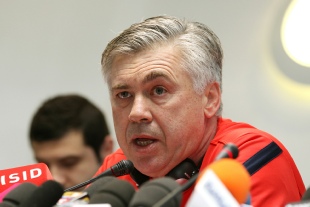
|
As a columnist, I'm always spoiled for choice when looking for corruption cases in
Spain to write about. Usually, of course, it's politicians or business leaders who
are revealed to be limitlessly greedy and unencumbered by principle: take banker
and ex- Unlike in most political fraud cases in Spain, the recent allegations against Real Madrid coach Carlo Ancelotti (so far) concern his personal finances only: state prosecutors suspect that he hid substantial chunks of his income from tax authorities during his first stint as the team's coach between 2013 and 2015. They seek a prison term of almost five years for Ancelotti, who returned to Real Madrid in 2021. If the allegations against Ancelotti are proven, they will raise the same question
as the scandal that ended Rato's career: 'Why?'. Though not necessarily easier to
condone, fraud cases of any kind are easier to understand if they concern people
trying to boost an inadequate income. Match- |
|
|
between 2010 and 2012, Rato's salary was around the two- But this we already know about corruption: it is hardly ever about the poor getting
rich, but almost always about the wealthy becoming wealthier. Even someone as financially
secure as Spain's ex- Ancelotti's suspected misdemeanors haven't so far affected the reputation of the
club he coaches. But in the biggest corruption scandal to hit Spanish football recently,
an entire team was under suspicion, just as the Popular Party as a whole was found
guilty of fraud in the Gürtel investigations. In the so- In this case, the question of motivation concerns glory rather than enrichment: why
would a team so good want to influence refereeing decisions in its favour anyway?
Ultimately, though, Negreira reveals what all the most recent corruption cases in
Spain have done, whether in business, football or politics - |


